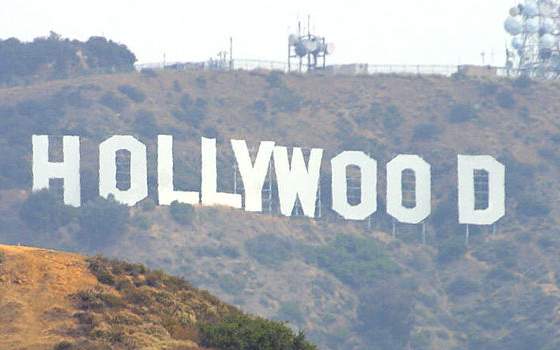- MENU
- HOME
- SEARCH
- WORLD
- MAIN
- AFRICA
- ASIA
- BALKANS
- EUROPE
- LATIN AMERICA
- MIDDLE EAST
- United Kingdom
- United States
- Argentina
- Australia
- Austria
- Benelux
- Brazil
- Canada
- China
- France
- Germany
- Greece
- Hungary
- India
- Indonesia
- Ireland
- Israel
- Italy
- Japan
- Korea
- Mexico
- New Zealand
- Pakistan
- Philippines
- Poland
- Russia
- South Africa
- Spain
- Taiwan
- Turkey
- USA
- BUSINESS
- WEALTH
- STOCKS
- TECH
- HEALTH
- LIFESTYLE
- ENTERTAINMENT
- SPORTS
- RSS
- iHaveNet.com

Hollywood, Propaganda and Liberal Politics
by Jonah Goldberg
The legendary media tycoon William Randolph Hearst believed America needed a strongman and that Franklin D. Roosevelt would fit the bill. He ordered his newspapers to support FDR and the New Deal. At his direction, Hearst's political allies rallied around Roosevelt at the Democratic convention, which some believe sealed the deal for Roosevelt's nomination.
But all that wasn't enough. Hearst also believed the voters had to be made to see what could be gained from a president with a free hand. So he financed the film "Gabriel Over the
Hearst wanted to make sure the script got it right, so he sent it to what today might be called a script doctor, namely Roosevelt. FDR loved it, but he did have some changes, which Hearst eagerly accepted. A month into his first term, FDR sent Hearst a thank-you note. "I want to send you this line to tell you how pleased I am with the changes you made in 'Gabriel Over the
I bring up this tale to note that Hollywood has never been opposed to propaganda. When Hollywood's self-declared auteurs and artistes denounce propaganda as the enemy of art, almost invariably what they really mean is "propaganda we don't like."
Consider the film "Lone Survivor," which tells the true story of heroic Navy SEALs in Afghanistan. The film has been denounced by some critics; a "jingoistic, pornographic work of war propaganda," in the words of one reviewer. Richard Corliss of Time chimed in: "That these events actually happened doesn't necessarily make it plausible or powerful in a movie, or keep it from seeming like convenient propaganda." Similar complaints (from non-conservatives, at least) about antiwar films made during the George W. Bush years are much harder to find.
Similarly, if Demi Moore proclaimed, "I pledge to be a servant to our president," at the dawn of the Bush presidency, it would have created a career-ending firestorm.
When it was owned by GE -- a company with billions of dollars invested in subsidy-dependent alternative energy technologies --
In the book, "Primetime Propaganda," author Ben Shapiro quotes many TV producers boasting about blacklisting conservative actors and shilling for liberal issues. As Shapiro notes, perhaps no figure was more upfront -- or successful -- at yoking art to political proselytizing than Norman Lear, the creator of "All in the Family," "The Jeffersons" and other shows.
Which is fitting. Last fall, the California Endowment, which is spending millions to promote the Affordable Care Act, gave
It's doubtful this will have any significant effect. The rollout has made its impression, and the changes wrought by Obamacare in the individual lives of millions of Americans won't be erased by a very special episode of "The Big Bang Theory." But it's a useful reminder that Hollywood is always eager to lend its services -- for the right president.
Receive our political analysis by email by subscribing here
AMERICAN POLITICS
WORLD | AFRICA | ASIA | EUROPE | LATIN AMERICA | MIDDLE EAST | UNITED STATES | ECONOMICS | EDUCATION | ENVIRONMENT | FOREIGN POLICY | POLITICS
Article: Copyright ©, Tribune Content Agency.
Hollywood, Propaganda and Liberal Politics